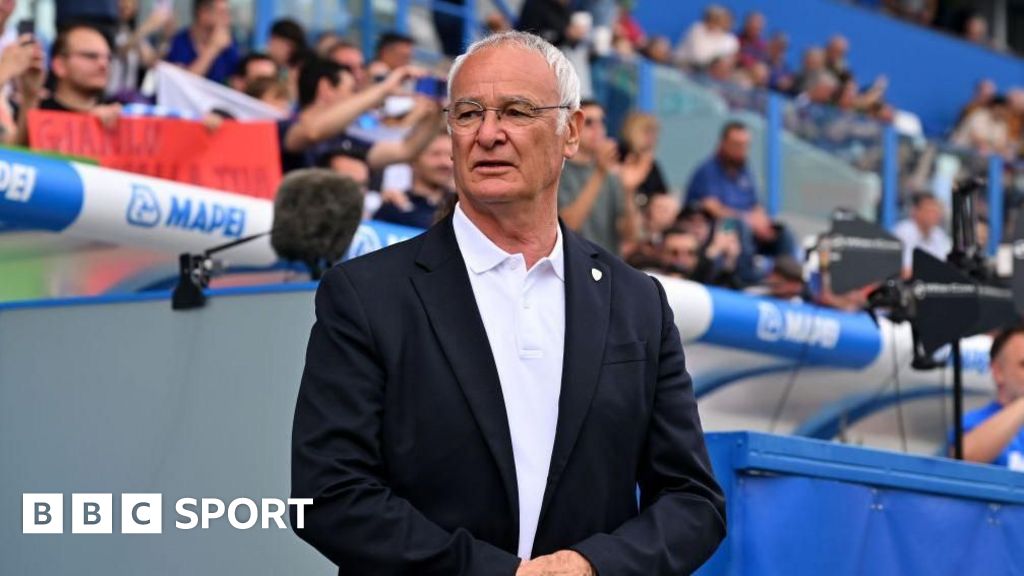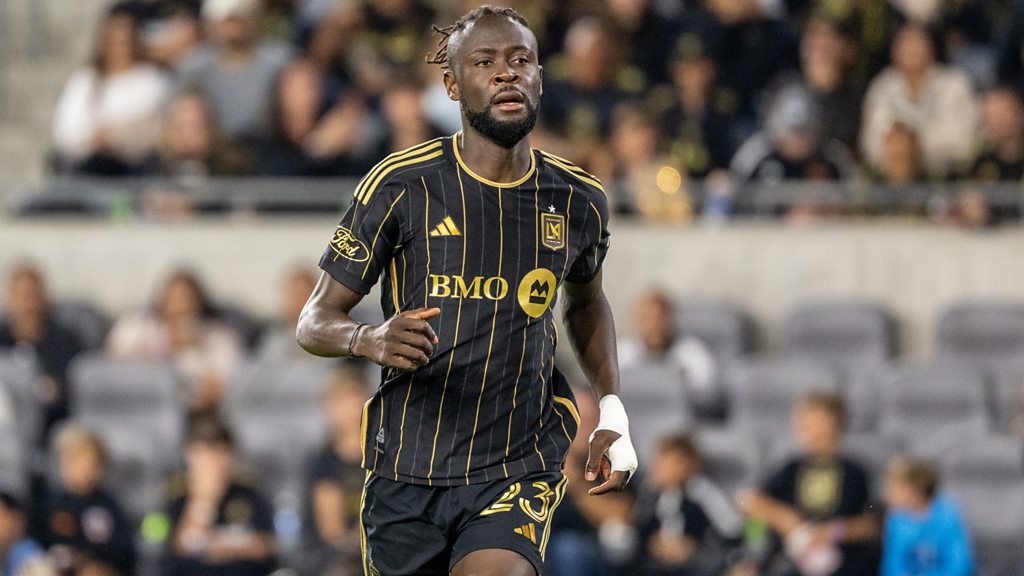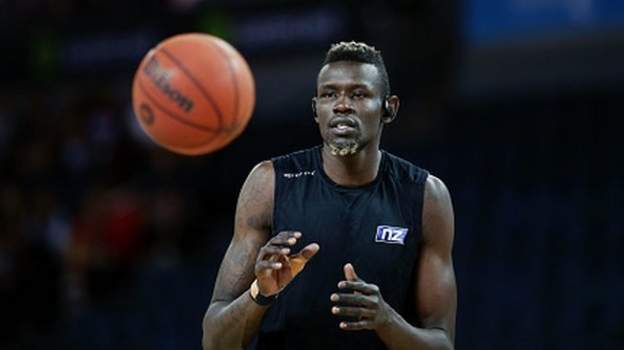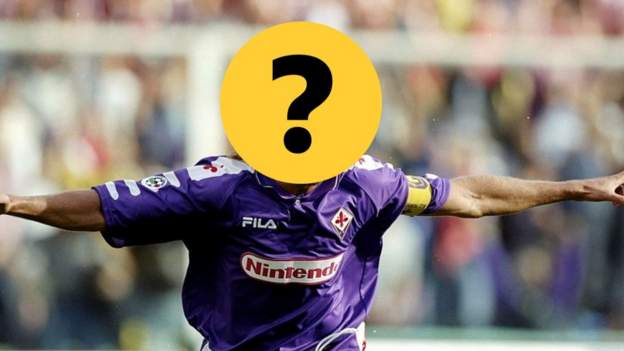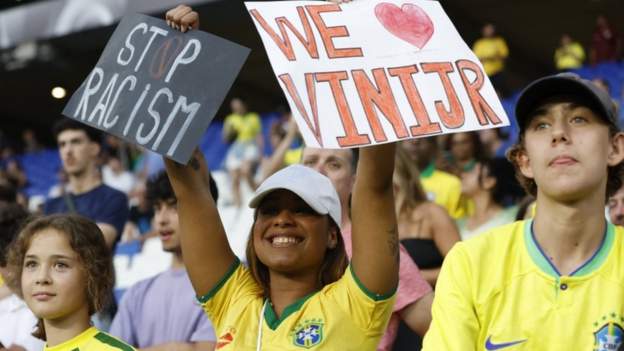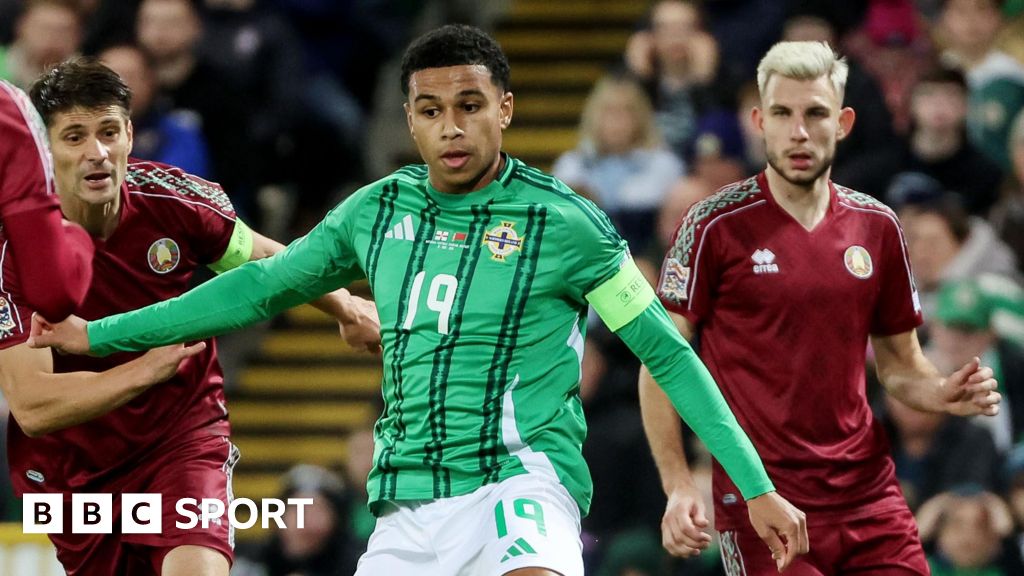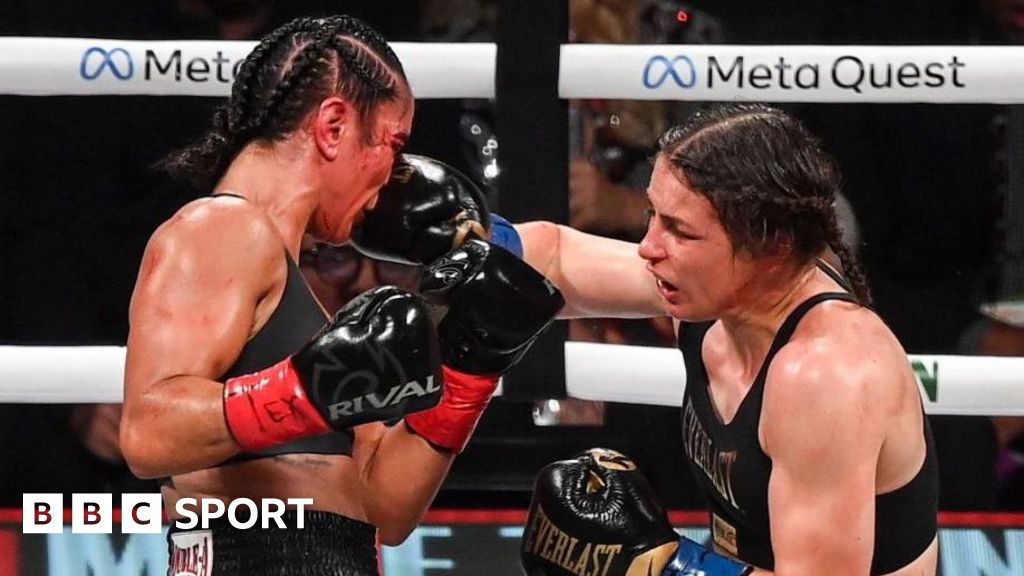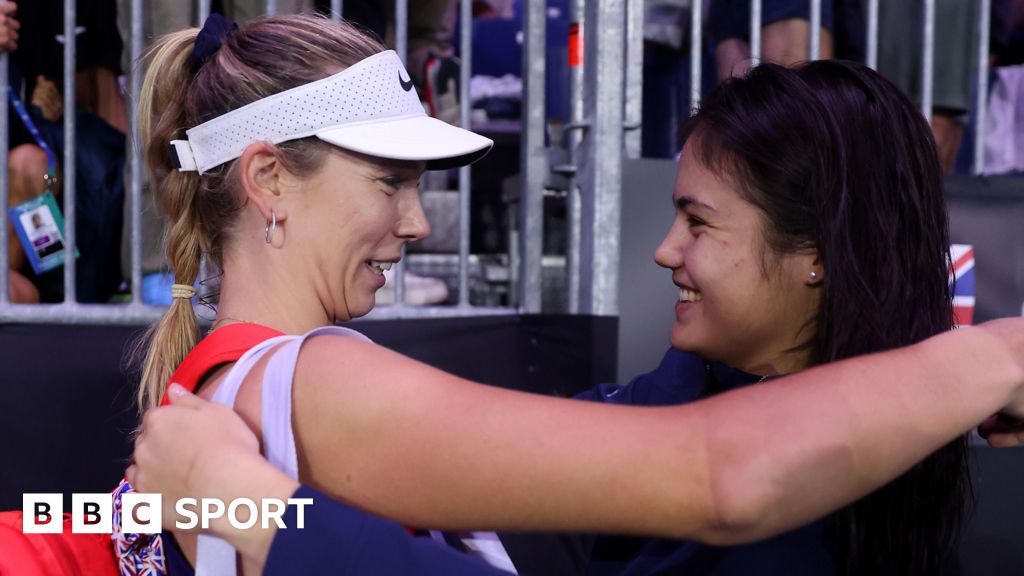Former Los Angeles Lakers centre Ater Majok says his return to Africa has enabled him to give back to a sport that offered him a ‘purpose’ in life.
The 35-year-old fled his country of birth Sudan with his family during the country’s second civil war in 1992.
A refugee camp in Egypt was followed by four years in Australia but, at the age of 16, Majok moved to the United States where his life changed forever.
“Growing up, it (basketball) saved my life, and it gave me a purpose in life,” Majok told BBC Sport Africa.
“When you are growing up as a refugee and go into a new country, you’re going to have difficulties, a lot of kids end up being on the streets.
“I’ve seen kids die, I’ve seen kids go to prison, I’ve seen kids being involved in illegal activities, and a lot of my friends, they’ve gone down that path.
“If I didn’t have basketball, I could have been easily persuaded to go down that that road.”
‘Forget about soccer’
For Majok, who now plays for Petro de Luanda in Angola, eight years in Egypt offered his family an escape and access to many different sports.
Basketball was not one of them though.
“In Egypt, I hated basketball. It was all about soccer and volleyball. It didn’t make sense for me,” Majok recalls.
All this changed in 2000 when he migrated to Sydney and was introduced to basketball by a family member.
“My first day in Australia, my cousin showed up to my house with a coach,” Majok said.
“He said: ‘you’re going to play basketball, you’re 6’8, so you need to play basketball, forget about soccer'”.
But it was after the move to America in 2004 that basketball began to influence his life.
“As I kept going, I started to have the love for it but it’s not until I went to the US and played in tournaments that I fell in love with it because I saw what basketball can do for me.
“I had an opportunity to go to university and I (thought): ‘I can get all this because I can dribble the ball, I can score?’.
“I was like: ‘I’m all in’.
“That’s when I started buying into the system.”
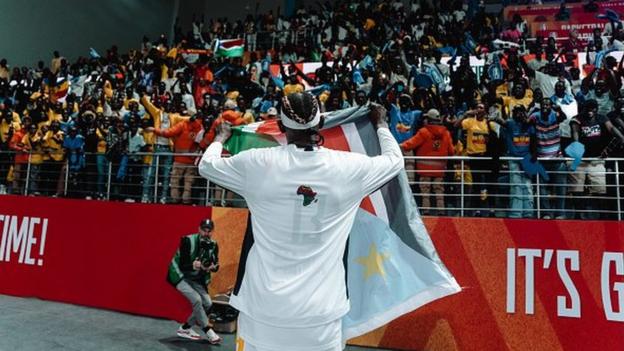
An American Dream
Majok was snapped up by Connecticut to play college basketball on a scholarship before beginning his professional career in 2010.
The centre was signed by the LA Lakers in 2011 as their 58th pick and didn’t make it on to the court in his first stint with the NBA team but made four appearances when he was signed again in 2014.
In 2016, after his first spell in the Lebanon league he chose to represent the Middle Eastern state internationally.
“South Sudan didn’t have a team at the time, and Australia’s team was stacked,” he explains.
“I was like: ‘this will give me an opportunity, to get myself more exposure to have a name to represent Africans in the Middle East region’.”
When the delayed Basketball Africa League (BAL) finally tipped off, Majok jumped at the opportunity to return to the continent with Tunisian side US Monastir.
He helped his team to second place in the first season before winning the championship in 2022. This year he finished fourth with his team Petro de Luanda.
“BAL has given a lot of players the opportunity to come back from the Middle East, Asia and all these different countries, and play on the continent.”
Majok says BAL has offered him an opportunity to give back to the sport in different ways. During the Nile conference leg of the BAL he helped secure tickets for the South Sudanese community in Egypt to watch the games.
“One thing that I’ve realised in the continent is that a lot of players don’t have access to proper coaching, proper uniform, proper shoes, different equipment and stuff like that,” he said.
“You have kids that walk up to you and ask, can I have your shoes? So now, I wear a pair of shoes for a game, and then I’ll give them out to a kid that wears my size.
“Also, giving access to a lot of kids, who just come watch the game to get the environment, some kids may never have that opportunity and if you give it to them it can change somebody’s life.”
Basketball uniting a nation
BAL was created by the NBA and basketball’s international body FIBA and is in its third edition.
Majok says the impact on African basketball is already being felt.
“When I go back to the States, everybody’s like: ‘you played in the BAL, that’s a lit league, it’s awesome’.
“You have American players reach out asking: ‘how can I join the league?’
“So the league is becoming more respected, African players becoming more respected.”
In the longer term Majok says BAL will also impact national teams and Africa’s participation in international competitions but there’s still more work to be done at national team level.
“The more we build BAL, the more the players’ levels grows and the same goes for the national teams, so it’s just a matter of time but we have to be patient and we have to groom a lot of young players.”
He may represent Lebanon internationally, but Majok keenly follows his home nation, South Sudan, in their basketball exploits.
This year the country qualified to the FIBA World Cup for the first time in their history.
Majok says the impact of this achievement will transcend sport in Africa’s youngest nation.
“People may not see it right away but qualifying for the World Cup is uniting people within South Sudan,” he said.
“There’s been a lot of trauma, a lot of political issues but now when people go watch the game, everybody joins hands and supports South Sudan, it is bridging those gaps that people have within the country.”

